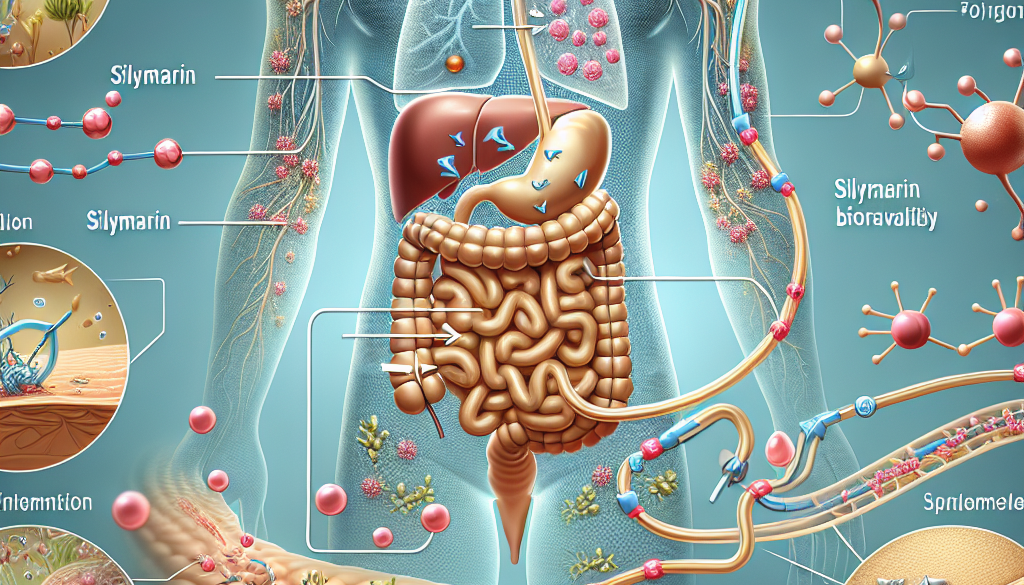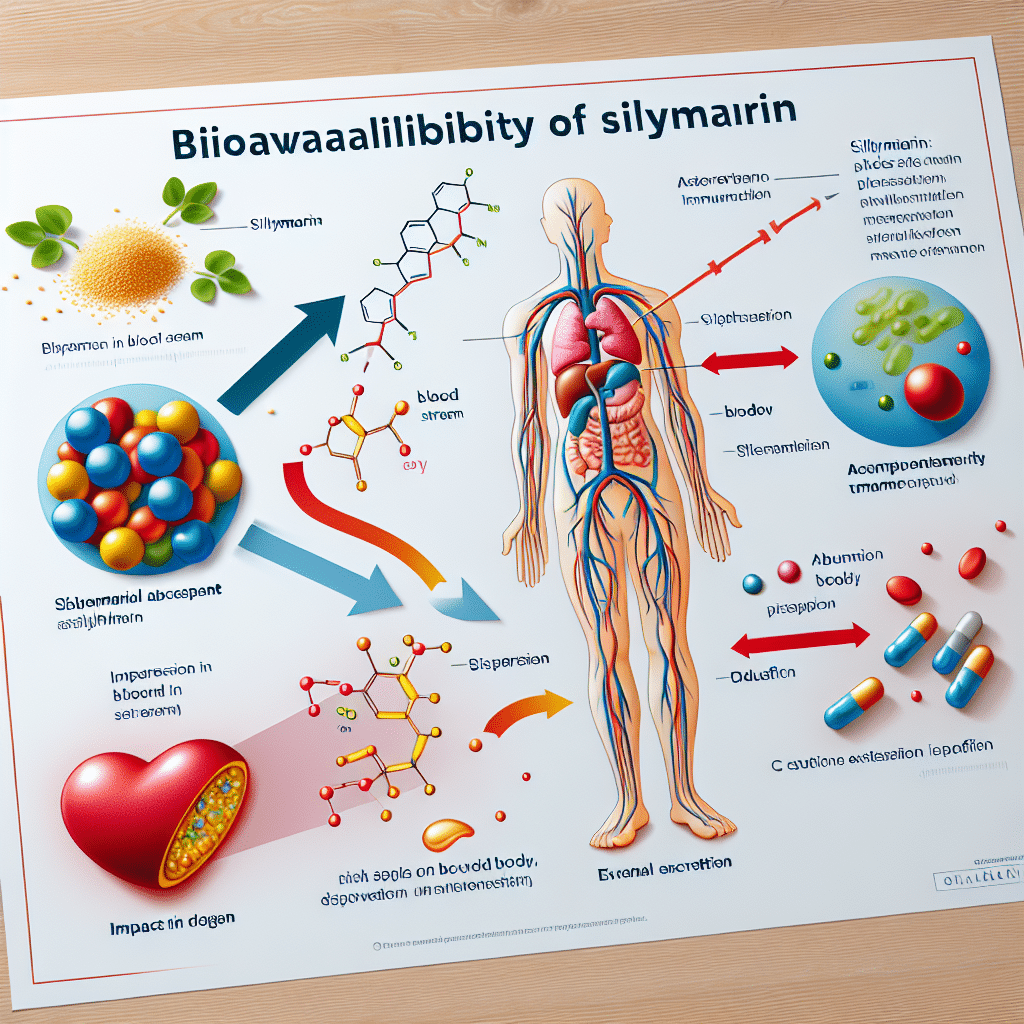Silymarin Bioavailability: How It Works
-
Table of Contents
- Silymarin Bioavailability: Enhancing Liver Health Effectively
- Understanding Silymarin and Its Components
- Challenges in Silymarin Bioavailability
- Strategies to Enhance Silymarin Bioavailability
- Case Studies and Clinical Trials
- Impact of Bioavailability on Therapeutic Outcomes
- Conclusion: The Importance of Silymarin Bioavailability
- ETchem’s Protein Products Recommendation
Silymarin Bioavailability: Enhancing Liver Health Effectively
Silymarin, a flavonolignan complex derived from the milk thistle plant (Silybum marianum), has been widely recognized for its hepatoprotective properties. It is commonly used to treat liver disorders such as cirrhosis, jaundice, hepatitis, and gallbladder disorders. However, the therapeutic effectiveness of silymarin is significantly influenced by its bioavailability, which refers to the extent and rate at which the active moiety enters systemic circulation, thereby accessing the site of action. This article delves into the bioavailability of silymarin, exploring how it works within the body and the factors that affect its efficacy.
Understanding Silymarin and Its Components
Silymarin is composed of several flavonolignans, including silybin (also known as silibinin), isosilybin, silychristin, and silydianin, with silybin being the most active and abundant component. These compounds are known for their antioxidant, anti-inflammatory, and antifibrotic properties, which contribute to their liver-protecting effects.
Challenges in Silymarin Bioavailability
The bioavailability of silymarin is relatively low due to its poor water solubility and limited absorption in the gastrointestinal tract. After oral administration, silymarin undergoes extensive first-pass metabolism in the liver, which further reduces its bioavailability. This means that only a small fraction of the ingested dose reaches the bloodstream and exerts its therapeutic effects.
Strategies to Enhance Silymarin Bioavailability
Several approaches have been investigated to improve the bioavailability of silymarin, including:
- Use of silymarin-phospholipid complexes
- Formulation of silymarin with bioenhancers
- Nanotechnology-based delivery systems
- Development of silymarin prodrugs
These strategies aim to enhance the solubility, stability, and absorption of silymarin, thereby increasing its bioavailability and therapeutic potential.
Case Studies and Clinical Trials
Several studies have demonstrated the improved bioavailability of silymarin when formulated with phospholipids or other bioenhancers. For instance, a clinical trial showed that silymarin-phospholipid complex had a significantly higher bioavailability compared to standard silymarin. Additionally, nanotechnology-based formulations have shown promise in delivering silymarin more effectively to the liver.
Impact of Bioavailability on Therapeutic Outcomes
The bioavailability of silymarin directly impacts its therapeutic efficacy. Higher bioavailability ensures that a greater amount of the active compounds reaches the liver, where they can exert their protective effects. This is particularly important for patients with severe liver diseases, where the liver’s capacity to process drugs may be compromised.
Conclusion: The Importance of Silymarin Bioavailability
In conclusion, while silymarin has potent liver-protective effects, its clinical benefits are heavily dependent on its bioavailability. Through innovative formulation techniques and delivery systems, the bioavailability of silymarin can be significantly enhanced, leading to improved therapeutic outcomes for patients with liver disorders. Understanding and optimizing silymarin bioavailability is crucial for maximizing its health benefits and ensuring effective liver support.
ETchem’s Protein Products Recommendation
For those interested in the health benefits of proteins and peptides, ETchem’s range of collagen products is worth exploring. Their high-quality collagens, including marine, fish, bovine, chicken, and various types of collagen, are ideal for various applications in the nutraceutical, pharmaceutical, and food and beverage industries. With a focus on purity, solubility, and neutral taste, ETchem’s collagen products are designed to meet the highest standards of quality and efficacy.
About ETChem:
ETChem, a reputable Chinese Collagen factory manufacturer and supplier, is renowned for producing, stocking, exporting, and delivering the highest quality collagens. They include marine collagen, fish collagen, bovine collagen, chicken collagen, type I collagen, type II collagen and type III collagen etc. Their offerings, characterized by a neutral taste, instant solubility attributes, cater to a diverse range of industries. They serve nutraceutical, pharmaceutical, cosmeceutical, veterinary, as well as food and beverage finished product distributors, traders, and manufacturers across Europe, USA, Canada, Australia, Thailand, Japan, Korea, Brazil, and Chile, among others.
ETChem specialization includes exporting and delivering tailor-made collagen powder and finished collagen nutritional supplements. Their extensive product range covers sectors like Food and Beverage, Sports Nutrition, Weight Management, Dietary Supplements, Health and Wellness Products, ensuring comprehensive solutions to meet all your protein needs.
As a trusted company by leading global food and beverage brands and Fortune 500 companies, ETChem reinforces China’s reputation in the global arena. For more information or to sample their products, please contact them and email karen(at)et-chem.com today.





